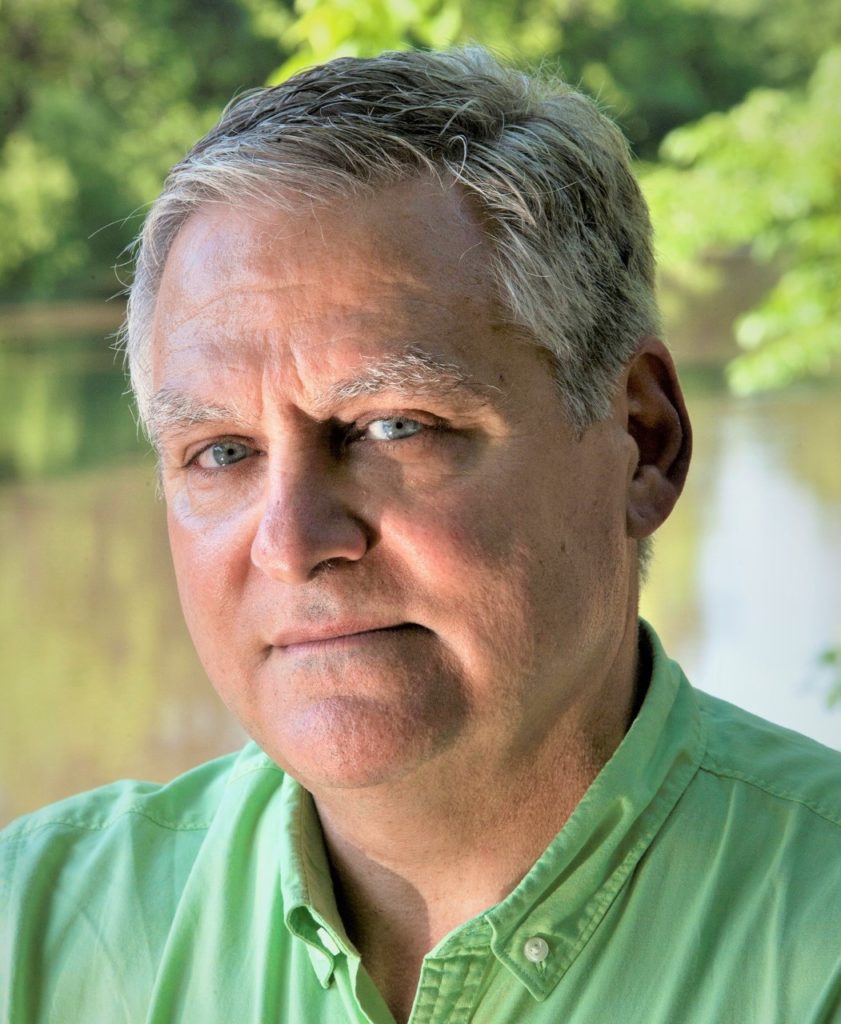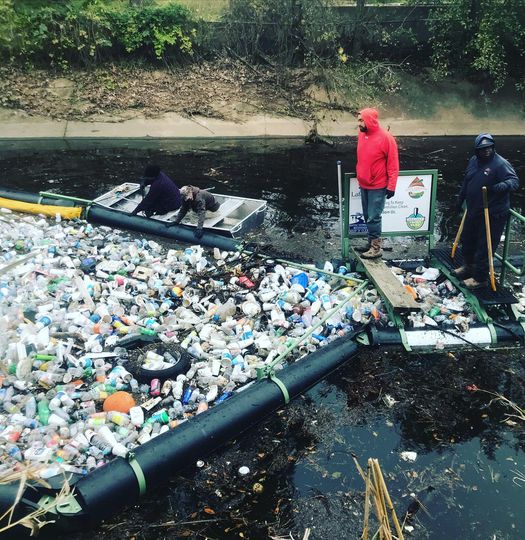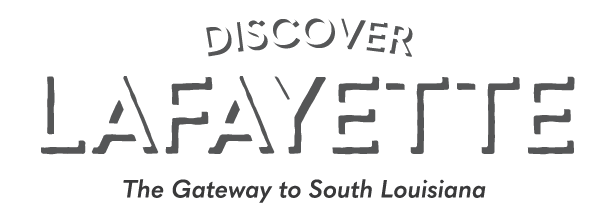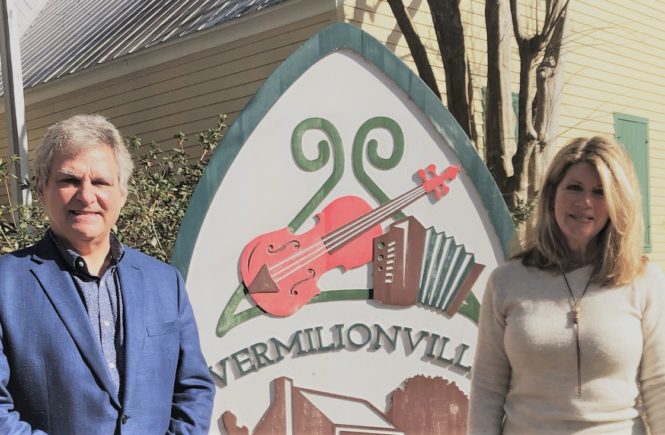Podcast: Play in new window | Download (Duration: 51:14 — 70.4MB)
David Cheramie, CEO of the Bayou Vermilion District (“BVD”), joined Discover Lafayette to discuss the operations of his organization.
Passionate about his calling to preserve our unique culture while educating others on the topic, and stressing the interdependence of our people with the land and water, Cheramie brings a poetic voice to our podcast.
Serving as CEO of the BVD since 2011, Cheramie previously served as Executive Director of CODIFIL, the Council for the Development of French in Louisiana. His entire adult career has focused on francophone issues, from teaching in schools to educating others about the unique culture our region enjoys.
He calls himself a “member of the lost generation,” a child and grandchild of a French-speaking family who never taught the young ones to speak the language due to the stigma of speaking “Cajun French” in the 1950s and 1960s. But fourteen generations ago, his family moved from France and his nuclear family raised him in the French ways; he always wanted to learn the language. An opportunity to spend a year in Montpellier, France as a sponsored student of CODIFIL gave him the opportunity to become fluent. An added bonus and the most wonderful lagniappe, Cheramie met “the prettiest French girl,” to whom he has now been married for almost forty years.
Cheramie shared the beauty of learning a second language and how the “floodgates were broken” when he realized he was speaking, thinking, and dreaming in French. “I felt this was my real personality coming out.”
He lived in France for seven years and worked as a clothing salesperson in stores throughout Southern France. Calling it a great experience as he got to know the people and culture, he became indistinguishable from the French natives. People were shocked to learn that he was a U. S. citizen and hadn’t grown up in France.
In January 1989, a chance encounter with Dr. David Barry at a banquet celebrating the Bicentennial of the French Revolution led Cheramie to come back to Louisiana. At that time, Barry was Department Head of Foreign Languages at USL (now the University of Louisiana at Lafayette) and was creating a new Ph.D. program in Francophone studies. He successfully courted Cheramie to move back and join the program; Cheramie became the second person to earn a Ph.D. in Francophone studies.
Cheramie was inspired by Dr. Barry Ancelet, another USL professor, who has been an active spokesperson in promoting the Acadiana culture and dispelling myths that denigrated the “Cajun.” A prolific writer, Cheramie began writing in French and quickly published three books of poetry which were published by Centenary College’s “Les Editions Tintamarre. Since those early days, he has published dozens of articles and has been a keynote speaker and presenter at conferences around the world.

Cheramie authors En Francais, S’il Vous Plait in French and English for Acadiana Profile Magazine, and his writings bring to life the unique culture we enjoy in this region. Focusing on artists, musicians, the food, historical figures and events, he captures the essence of what makes South Louisiana so special. Cheramie quoted the old saying, “The spoken word flies away but the written word stays,” to reinforce his belief that writing in French/Cajun words will guarantee that ensuing generations will retain the knowledge of this precious culture and its manner of speaking.
The BVD was founded in 1984 by an act of the Louisiana legislature to beautify, manage, and preserve the Vermilion River. It is overseen by a nine-member board whose members are appointed by various elected officials. Its main source of funding is a small property tax millage which raises approximately $1.7 million annually, and additional funding is raised through admission fees and other revenue raised by operations (restaurant, gift shop, event rentals, lessons, and paddle trips) held at Vermilionville.
The BVD oversees operations of the Vermilionville Living History and Folklife Park, a 23-acre preserve situated along the banks of the Bayou Vermilion. Visitors can learn about our region while seeing depictions of the Acadian, Creole, Native American, and African cultures from the time period of 1765 through 1890. You can experience guided tours, a cooking school, dance lessons, and boat tours. Once the COVID pandemic is under control, the BVD looks forward to offering live music on a continual basis so that people can enjoy “two-stepping across the floor” once again, as well as welcome the annual “Black Pot Festival” traditionally held over the weekend of Halloween.
The Vermilionville Living History Museum is the only accredited museum in Lafayette, a fete that is tough to accomplish and was the result of over two years of effort to meet the stringent guidelines of the American Alliance of Museums.
Even with the COVID restrictions, the public is welcome to visit and interact with costumed artisans depicting life in the Acadian, Creole, and Native American cultures. Vermilionville is open six days a week to the public, Tuesday through Sunday, and visitors can also take advantage of its delicious cuisine. Cheramie is convinced that its gumbo and bread pudding are among the best offerings in the region.
Students have enjoyed field trips to Vermilionville where they learn about maintaining the health of the river. They also learn about our history, and the craft of the blacksmith, who was the most important artisan in town as everyone had to build all of their own tools to survive on the land and needed the help of this craftsman. They also learn about the old ways of farming. Cheramie shared how students learn more about how brown cotton, indigenous to our region, was grown and how it took one year from planting the cotton seed to being able to harvest, spin the raw cotton into thread, weave the thread into fabric, and finally sew the fabric into a skirt or pants. Quite a change from these Amazon days of instant gratification!
The mission of the BVD is to protect the ecology and environment of the Vermilion River. We all play a role in the health of this river which traverses our community and many of us unwittingly contribute to its demise in damaging ways. We all roll our eyes when we hear of a dumped sofa or washing machine found along the banks of the Vermilion, but how many of us are guilty of littering the streets with cigarette butts, cans and bottles, fast food packaging, or even blowing our cut grass into the street?
Cheramie explained that “the vast majority of water runoff, along with the trash flowing with it, drains into the Bayou.” The water and trash don’t just go away…..they flow into various waterways that lead to the Vermilion. BVD staff work tirelessly to prevent the waste from entering the river and uses a Bandalong Litter Trap which captures litter at the Coulee Mine at Rotary Point, pulls out tons of trash, and is emptied each month. Most trash has to be picked up individually by staff (four employees and a supervisor) and they fill approximately 1000 55 gallon drums each year. The staff also clears out downed trees to alleviate flooding problems.

The BVD also works to control fecal coliform bacteria (fecal matter) from entering the Vermilion. Staff will test septic tanks to look for malfunctioning systems that don’t properly filter the waste water. Cheramie says that some people don’t even realize they have a septic system, and therefore haven’t done the proper maintenance to keep them functioning in a safe manner. The BVD has partnered with LCG’s Office of Community Development to identify people who may need assistance and provide the means to test and treat septic systems throughout the community which are contributing to our polluted waterway.
To learn more about the work of the Bayou Vermilion District, visit https://bayouvermiliondistrict.org/. We thank David Cheramie for his dedication to our community and protecting and preserving our culture.

